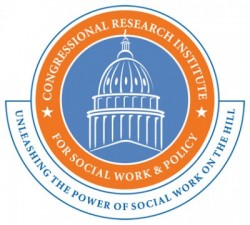The world is still reeling from the shock of the referendum that sanctioned the United Kingdom’s severing its membership in the European Union. The Brexit ballot blockbuster sent tremors throughout the global marketplace last week resulting in the loss of $2 trillion in capital—the largest one-day sell off ever. British Prime Minister David Cameron immediately announced his resignation effective some time before the Conservative Party convention in October. As expected, media pundits pondered implications Brexit may have for the United States facing a tumultuous presidential election just months ahead. The Republican Party’s presumptive nominee, Donald J. Trump, fortuitously in Scotland the day following the election to promote the re-opening of his Turnberry golf course, declared in his usual bombastic manner that plunging British currency could mean more business for his golf course. He also did not pass on the opportunity to blame President Barack Obama for the Brexit fiasco.
The fact that a wave of populist revolt resulted in the surprising and narrow vote to leave the European Union fueled speculation that the EU’s freedom of movement policies had led to uncontrollable numbers of immigrants flooding into the UK. With recent terrorist attacks in Brussels and Paris, voters wanted to signal their displeasure with their nation’s immigration policies. Similarly, here in the United States, many voters have flocked to Donald Trump because of his draconian immigration policy proposals they hope will close America’s borders, particularly to would-be Muslim immigrants. Many are voting with emotion rather than reason in the wake of the mass shooting at Orlando’s Pulse dance club when the shooter pledged allegiance to ISIS during his gruesome slaughter of 49 people and wounding of dozens of others. Donald Trump hopes to ride the wave of panic into the White House.
 But is immigration really a major problem for Great Britain? It depends on how you look at it. There is a birth rate crisis in Europe. Women on average give birth to 1.55 children in the European Union, significantly lower than the 2.1 children generally thought to be needed to replenish the population. According to 2014 data, the UK at 1.81 had the third highest birthrate in the EU, behind France (2.01) and Ireland (1.94) with Portugal bringing up the rear at 1.3 children. However, Britain’s resurging birthrate is aided by births by non-British mothers. Non-British mothers accounted for 27 percent of births in 2014, up from 12 percent of births in 1990 and 15 percent of births in 2000.
But is immigration really a major problem for Great Britain? It depends on how you look at it. There is a birth rate crisis in Europe. Women on average give birth to 1.55 children in the European Union, significantly lower than the 2.1 children generally thought to be needed to replenish the population. According to 2014 data, the UK at 1.81 had the third highest birthrate in the EU, behind France (2.01) and Ireland (1.94) with Portugal bringing up the rear at 1.3 children. However, Britain’s resurging birthrate is aided by births by non-British mothers. Non-British mothers accounted for 27 percent of births in 2014, up from 12 percent of births in 1990 and 15 percent of births in 2000.
There are critical economic ramifications for lower birth rates in the European Union. As birth rates decline, populations grow older and there are less taxpayers to support the costly needs of this population. Also, there are not enough workers to replace retiring seniors to keep the economy running. As populations age, the number workers supporting retirees will begin to diminish. In the United States, for example, there were 3.6 workers paying taxes to support beneficiaries of Social Security in 1970. That number fell to 2.8 workers in 2010 and is expected to drop to 1.9 workers in 2030. Obviously they must pay higher taxes in order to maintain benefit levels. For the record, the 2015 birth rate in the United States is 1.9 children which less than needed for sufficient population growth but by no means a cause for concern. Foreign-born mothers have higher birth rates than American born mothers although the gap has closed in recent years. Both the European Union and the United States depend on immigration.
Other factors such as globalization and the tough times working-class Brits have endured as a result of Tory austerity policies makes it easy to point the finger of blame at immigrants as a source of their hardship, especially with United Kingdom Independent Party (UKIP) leader Nigel Farage’s rantings about out-of-control immigration and UKIP’s release of a scandalous poster shortly before the referendum. Poland with 15.1 percent and India with 7.3 percent are the top countries of origin for British immigrants. No Muslim country is listed in the top 10. UKIP’s scare tactics were completely fabricated and many Brits fell for the con. There could be many more bitter pills to swallow. The real problem in the UK and the US is rampant income and wealth inequality spurred by supply-side tax cuts that transferred enormous wealth from the middle class to those at the top of the economic ladder. Until that is addressed, there will be more turmoil from the electorate.
The post EU’s Declining Birth Rates Fuel Immigration Challenges appeared first on Congressional Research Institute for Social Work and Policy.
Written By Charles E. Lewis Jr., Ph.D
EU’s Declining Birth Rates Fuel Immigration Challenges was originally published @ Charles Lewis – Congressional Research Institute for Social Work and Policy and has been syndicated with permission.
Our authors want to hear from you! Click to leave a comment
Related Posts






